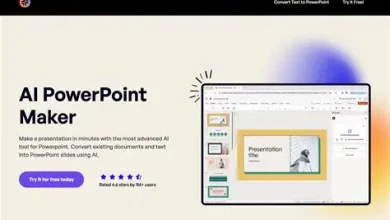
Startups and early-stage companies have a vast array of problems to solve and fires to put out at any given moment. Whether it’s securing funding, refining a go-to-market strategy or fixing a leaky sales pipeline, founders have to deal with competing priorities every day.
One that cannot be overlooked if a company is to thrive is getting early hires right. It’s tough going from being an individual with a vision – or a tight-knit band who know each other intimately – to bringing someone new on board from the outside. It’s especially tough when you’re looking to employ a tech specialist as a non-tech founder.
Regardless of the position you’re looking to fill, early-stage tech hires now need one more key skill than they did a few years ago – high-level AI literacy.
AI skills in high demand
Over the past year, nearly half of venture funding went to AI-related enterprises, rising to 61% amongst later stage companies. But even where companies aren’t specifically AI businesses, the technology is often baked into what they do.
However, while there’s a lot of hype around no code tools and vibe coding, it’s a mistake to think that AI has reduced the need for tech hires. If anything, it’s made smart hiring more important. Knowing what you need to build to make your product or service connect with people requires the kind of experience and judgment that you can’t just import via AI. In other words, being able to translate the needs of non-technical founders into workable tools and interfaces is arguably as valuable as the technical knowledge itself.
We’re seeing this first-hand. In the vast majority – 85% in fact – of client requests arriving on our platform over the past six months that involve full-stack or backend engineers, there has been a clear requirement or strong preference for AI-related skills. This includes prompt engineering, API integrations with LLMs, or simply knowing how to use AI tools efficiently in daily workflows.
Additionally, when looking at our own developer pool, around 10% are now AI engineers, and that number is growing steadily every week. This reflects the wider trend we’re seeing across the market: AI literacy is rapidly becoming a baseline expectation in technical roles.
The power and limits of AI
So what are early-stage companies looking for in hires in terms of AI skills? The key is having a clear sense of what problem they’re solving and how AI fits into that solution. Founders need to look for candidates who can balance speed with strategy: people who can scope out a problem, test quickly, and understand what’s worth automating and what needs human craft. Once that clarity is in place, AI can make a real difference. It can be deployed in areas where it won’t constantly need correcting or risk introducing ambiguity.
Used well, AI can take repetitive build tasks off engineers’ plates – things like generating boilerplate code, automating test coverage, speeding up documentation or streamlining devops. It also allows startups to know where to integrate smart off-the-shelf tools instead of reinventing the wheel. This frees engineers up to focus on core product decisions and more complex functions that actually differentiate the business. The result is leaner, sharper builds.
This kind of efficiency and productivity is especially important for startups, where money is tight and every hour counts. Crucially too, for early stage hiring, AI has not only not reduced need for technical hires, but made processes of finding the right match easier too, streamlining the way tech recruitment takes place and supporting visionary founders who are a little lighter on tech expertise.
Searching with the right parameters
This shift is already reshaping the way early-stage companies approach hiring – recent figures show 71% of employers prefer AI skills above experience. But CVs that list AI tools without context won’t be enough. The smartest founders are updating job specs to probe a candidate’s judgement – when they reach for automation, how they evaluate new tools and how they balance experimentation with product stability – to move fast but ideally not break things as much.
It’s also changing the way teams are structured. Instead of slotting hires into rigid roles, founders are building around problems. They’re looking for talented generalists who might have a core function they excel at, but can also apply tools to help them shape other elements of development – as well as bake AI into products and processes. Looking for adaptability, not just experience, has always been part of hiring at startups, but it’s now more crucial than ever.
Staying ahead of the curve
AI literacy, then, is more than having a candidate that knows their way around the tools – it’s a mindset. The companies that get this right will be fundamentally more competitive. They’ll run leaner, be able to pivot and respond to adversity quicker and attract the kind of talent that thrives on doing meaningful work at speed.
To stay ahead of the curve, early-stage teams need to treat AI as a core capability from day one. But that doesn’t mean rushing to automate every process. It’s about embedding a culture where experimentation is rewarded and everyone, from product to engineering to operations, understands how AI can extend their impact.
The talent you hire early on in your company’s existence will shape what it can become. In a landscape where tools evolve fast and headcount might stay small for longer, how your team thinks about AI is as important as their technical ability.





